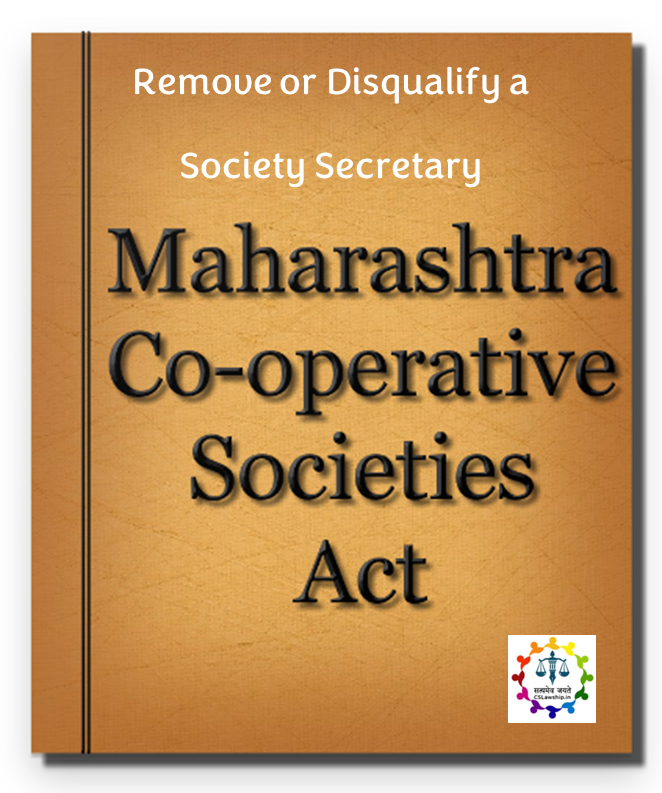Understanding Associate Membership in Housing Societies: Rights, Duties, and Legal Framework
An Associate Member in a housing society plays an important role, especially when the primary (original) member delegates responsibilities. Their rights and limitations are defined under the Maharashtra Cooperative Societies (MCS) Act, 1960, MCS Rules, 1961, and the Model By-laws. This article elaborates on the procedure to become an Associate Member, their rights, duties, and differences from a joint member.
Definition of an Associate Member
As per Section 2(19)(b) of the MCS Act, an Associate Member is a person whose name is recorded in the society's records with the written consent of the primary member. They are not co-owners of the property but are authorized to participate in the society's affairs within certain limitations.
How to Become an Associate Member
- Nomination by the Primary Member:
- The primary member must submit a written application nominating the Associate Member.
- Payment of Fees:
- A nominal fee, typically INR 100, must be paid as per Model Bye-law 19(b).
- Inclusion in Society Records:
- The Associate Member’s name is added to the society's records upon approval by the managing committee. However, their name is not added to the share certificate.
Rights of an Associate Member
- Participation in General Body Meetings (AGMs and SGMs):
- As per Model Bye-law 27(b), an Associate Member can attend AGMs and SGMs only in the absence of the primary member and with their written authorization.
- They can participate in discussions and vote on behalf of the primary member if authorized.
- Voting Rights:
- According to Section 27(2) of the MCS Act, an Associate Member can vote only if:
- The primary member is absent.
- The primary member has provided written consent.
- According to Section 27(2) of the MCS Act, an Associate Member can vote only if:
- Eligibility to Join the Managing Committee (MC):
- Under Model Bye-law 118(b), an Associate Member can contest for a position in the Managing Committee if:
- They have explicit written consent from the primary member.
- Once elected, they have the same responsibilities as any other committee member.
- Under Model Bye-law 118(b), an Associate Member can contest for a position in the Managing Committee if:
- Limited Legal Representation:
- The Associate Member can represent the primary member in society matters within the scope of their authorization.
- No Ownership Rights:
- They are not co-owners of the property, and their rights are secondary to the primary member.
Distinction Between Associate Member and Joint Member
Criteria Associate Member Joint Member Definition Nominated by the primary member and listed in society records. Co-owner of the property whose name appears on the share certificate. Ownership No ownership rights. Equal ownership rights with the primary member. Voting Rights Can vote only with primary member's consent. Has independent voting rights. Eligibility for MC Requires primary member's written consent. Eligible without any consent. Participation in Meetings Only in the primary member's absence and with authorization. Can participate independently.
Limitations of an Associate Member
- No Name on the Share Certificate:
- As per Model By-law 19(b), the Associate Member’s name is not added to the share certificate, which restricts their ownership rights.
- Restricted Independent Rights:
- They cannot independently vote, attend meetings, or contest elections without the primary member’s authorization.
- No Authority over Property Decisions:
- An Associate Member cannot sell, transfer, or make ownership-related decisions for the property.
Legal References for Associate Membership
- MCS Act, 1960:
- Section 2(19)(b): Defines an Associate Member.
- Section 27(2): Voting rights of Associate Members.
- MCS Rules, 1961:
- Rule 20: Details the nomination procedure and rights of members.
- Model By-laws:
- By-law 19(b): Inclusion and rights of Associate Members.
- By-law 27(b): Participation in AGMs and SGMs.
- By-law 118(b): Eligibility to join the Managing Committee.
Summary
What an Associate Member Can Do:
- Attend AGMs and SGMs with written authorization from the primary member.
- Vote or contest elections with written consent.
- Represent the primary member in society affairs.
What an Associate Member Cannot Do:
- Have their name added to the share certificate.
- Exercise independent ownership rights or make property-related decisions.
- Participate in meetings or vote without the primary member's authorization.
Conclusion
The role of an Associate Member is defined by their authorization from the primary member. While they can actively contribute to the functioning of the society, their rights are secondary to those of the primary member. Understanding these legal provisions helps avoid conflicts and ensures smooth functioning within housing societies.
For further clarification, consulting legal experts in cooperative housing laws is recommended.
Associate Member


























